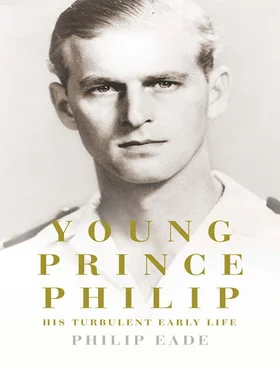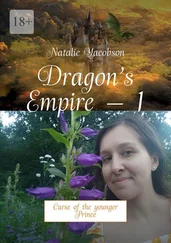Andrea grew up with his brothers and sisters at the gaunt royal palace which had been built by King Otto on a hill overlooking old Athens and was extensively ransacked after his departure. Nowadays used as the Greek parliament, during Andrea’s childhood it was an ‘excessively uncomfortable’ family home, so his younger brother Christopher recalled, with only one bathroom where the taps emitted a dismal trickle of water and the odd defunct cockroach. 19As a boy, Andrea suffered at least one bout of typhoid, presumed to have been caught from the palace drains.
Winters were especially spartan, with cold winds whistling through the long, dim galleries and countless unused rooms. King George seems to have grown sterner with fatherhood and whatever the weather bade his sons get up at six each morning for a cold bath and then lessons at 6.30 sharp. His sister Alexandra, who came to visit in 1893, when Andrea was eleven, noted that the king was ‘rather tyrannical in the family’ and failed to take his children into his confidence even when they grew up, which embittered them towards him. 20However, he would occasionally unbend to lead bicycling or roller-skating processions around the palace with the whole family following in order of age.
He told his children: ‘You must never forget that you are foreigners in this country, but you must make them [the Greek people] forget it.’ 21The eldest children spoke Greek to each other at home and English to their parents, who in turn conversed in German. Andrea was always more Greek than any of his siblings and as a boy flatly refused to speak any other language. 22
Although George liked discipline and uniforms, he was in other respects a relatively down-to-earth monarch, and the atmosphere at his court was generally far more relaxed than elsewhere in Europe. The princes and princesses were known by their Christian names alone and often hailed as such in the street. They all grew up with a love of practical jokes. ‘Anything could happen when you got a few of them together,’ according to Philip. ‘It was like the Marx brothers.’ 23
Court balls were notably democratic. A foreign guest once hired a carriage to drive him to the palace for one of these parties, only for his coachman to stipulate: ‘Do you mind going rather early, because I’m going there myself and shall have to go home and change?’ The foreign gentleman laughed at what he thought was a rather good joke; but later in the evening, there was his driver, resplendent in evening clothes, dancing with the wife of a minister. 24
There was a fairy-tale quality to the whole set-up. When E. F. Benson visited in 1893 he recorded that on Sunday afternoons a small compartment was often reserved on the steam tram that ran between Athens and the coast at Phaleron; when it stopped opposite the palace, the king and his family would emerge to the sound of a bugler. If they failed to come at once, the driver would impatiently touch the whistle. Benson found Greece to be an
astonishing little kingdom, the like of which, outside pure fiction, will never again exist in Europe … its army dressed in Albanian costume (embroidered jacket, fustinella, like a ballet skirt, fez, white gaiters, red shoes with tassels on the toes like the seeds of dandelions), its fleet of three small cruisers, its national assembly of bawling Levantines and its boot-blacks called Agamemnon and Thucydides, was precisely like the fabulous kingdom of Paflagonia in The Rose and the Ring, or some Gilbertian realm of light opera. 25
Every other summer the family would travel to Denmark, where King Christian IX and his wife Queen Louise had their descendants to stay en masse at the vast Fredensborg Palace. With all the court attendants and personal servants, the house parties numbered up to three hundred, and apart from the Greek royal family, included the Prince and Princess of Wales and Tsar Alexander III and Tsarina Marie Feodorovna (as King George’s sister Dagmar had now become). Court etiquette was dispensed with during the day, when the tsar would take the children off to catch tadpoles or steal apples, but for dinner they all entered the big hall in a long procession arm in arm, preceded by the tsar, who offered his arm to Queen Louise, and the rest following according to rank.
There were also regular trips to Russia – across the Black Sea to Sebastopol where the luxurious imperial train awaited – and to Corfu, one of the Ionian islands given to Greece by Britain on George’s accession to the throne, and where the municipality had presented the new king with a villa, Mon Repos, on a promontory just to the south of Corfu Town. But most of their time away from Athens was spent at Tatoï, Andrea’s birthplace, the royal estate of 40,000 acres in the pine-scented foothills of Mount Parnés, high enough to be much cooler than the capital. After buying Tatoï in 1871, King George had established a vineyard to produce an alternative to the pine-infused retsina, which he detested, and a butter-making dairy farm with a range of Danish-style stone buildings. For those who were not well disposed towards their imported monarch there was evidence at Tatoï that he had not embraced his adopted country quite as wholeheartedly as he liked to make out.
By 1886, the king had replaced the original small villa with a replica of a hideous Victorian-style house that stood in the grounds of his wife’s family home, Pavlovsk, and so Tatoï became the one place where Queen Olga never felt homesick; she celebrated her birthday there each year with a big party for all the estate workers. The family all grew to love Tatoï and most of them, including Andrea, are buried in the wooded cemetery there. But their white marble graves are seldom visited nowadays. Since 1967, when the last Greek king, Constantine II, went into exile in Surrey, the estate has become overgrown and the buildings are now mostly ruins. A few picnic tables scattered about the park hint at the symbolic gesture of giving Tatoï to the republican Greek people of today, but few visitors come here now and if you ask for directions from Athens, you are almost guaranteed to get a blank look.
Andrea’s childhood was on the whole steady, but there were also events of great sadness. The first of these occurred when he was nine, when his sister Alexandra died while giving birth to her son, Dimitri, three years after her marriage to Grand Duke Paul of Russia. The whole family, including Andrea, travelled to Moscow, where the young Grand Duchess lay in state in a special room at the station, and then on to St Petersburg for the funeral. One of Andrea’s elder brothers later recalled that it was ‘all so unexpected and awful that the shock and sorrow overpowered us all’. 26King George, who doted on his daughter, never got over it.
For all the king’s personal popularity, Greece remained a turbulent and violent country, and he survived several assassination attempts. In 1898, while out driving with his daughter Marie – later Grand Duchess George of Russia – his carriage was attacked by two men who opened fire with rifles at close range. Marie had a red bow in her hat which her father thought would make her an easy target for them ‘so he quickly stood up,’ she recalled, ‘put his hand on my neck and forced me down. With his other hand he menaced them with his walking stick.’ Both horses were hit and slightly wounded and a footman was injured in the leg; however the king and his daughter were miraculously unscathed. 27
When he was fourteen, Andrea began attending classes twice a week at the military college at Athens, where he was drilled by German officers and became quite friendly with the future dictator Theodore Pangalos, 28an association that may later have saved his life. From the age of seventeen, he was privately tutored by another future revolutionary, Major Panayotis Danglis, who privately noted that his new charge was tall, quick and intelligent – and short-sighted. 29The king was forever urging Danglis to increase Andrea’s hours of tuition, and when the family went on holiday to Corfu in the spring of 1900 Andrea was made to stay in and attend to his military studies rather than go on many of the picnics and excursions. 30
Читать дальше












